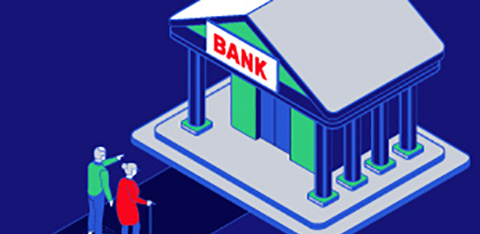Managing your finances can be difficult on its own, but when you add another person, it can be even more of a hassle. The stress and tension that comes with couples and money management are among the leading causes of divorce in the United States.
According to Forbes, conflicting money management styles can be destructive for couples. If one person is a saver and the other is a spender in the relationship, arguments may arise as to where the money goes. However, if you’re preparing to merge finances, or if it’s been a constant struggle, we’ve put together some tips for couples and money management.
1. Talk about Relationship Money Goals
It’s important to sit down with your partner and discuss your overall money goals. What financial goals are you saving for? How much do you want to set aside? Do you want to retire early and move out to the country? Are you working toward becoming debt-free? These are important questions to ask.
This lets you communicate what you envision for the future and work toward developing a common goal. If you both have different long-term goals, that’s okay. Talk through what you both want and figure out how you can work together to make the relationship and money management run more smoothly.
2. Discuss Shared Spending and Budgeting
You both need to be on the same page when it comes to managing your finances. Are you keeping separate accounts; or, are you officially combining your money with a joint account? Are you dividing bills; or, is one person taking over this responsibility? What about a household budget?
Sit down with your partner and create a realistic budget. The NFCC’s 2019 Consumer Finance Literacy Survey found that only 40% of Americans have a monthly household budget. A budget is a tried-and-true method for staying financially organized and on track. Go over and revise your household budget often to make sure you reach your financial goals as a couple.
3. Be Open about Debt and Expenses
Being honest and straightforward about debt and expenses is crucial for couples and money management. You’re not responsible for your partner’s debt, but you need to be aware of his or her financial obligations when merging finances. Even though you’re not liable, you can sit down together and create an actionable plan for how to tackle debt and other expenses.
4. Have the Credit Talk
Most couples don’t discuss their credit scores or credit history right away. It typically comes up when moving in together, but credit conversations are never a top priority. While a lower credit score isn’t a deal-breaker, if you have similar credit scores, you’re more likely to have financial habits that more closely align with one another. However, if you’re merging finances with a partner who has a low or bad credit score, it could affect your ability to get affordable financing with joint purchases.
Make it a point to have the credit conversation. If one person has a low credit score, work together to determine the financial habits that caused this to happen. Team up to improve the lower credit score.
5. Plan for Retirement
If you’re planning to spend your life together, you’ll inevitably discuss plans for retirement. Retirement planning is an essential long-term money management goal. Be sure to discuss:
- What your expectations are and what sort of lifestyle you want to live after retirement
- If you plan to move or downsize your home
- When you want to stop working
- Savings strategies and choosing the right retirement plan to build your nest egg
Couples and Money Management
Communication is crucial when it comes to couples and money management. Discussing finances isn’t necessarily fun, but by learning how to talk to your partner about money management, you can avoid future arguments and stress.





